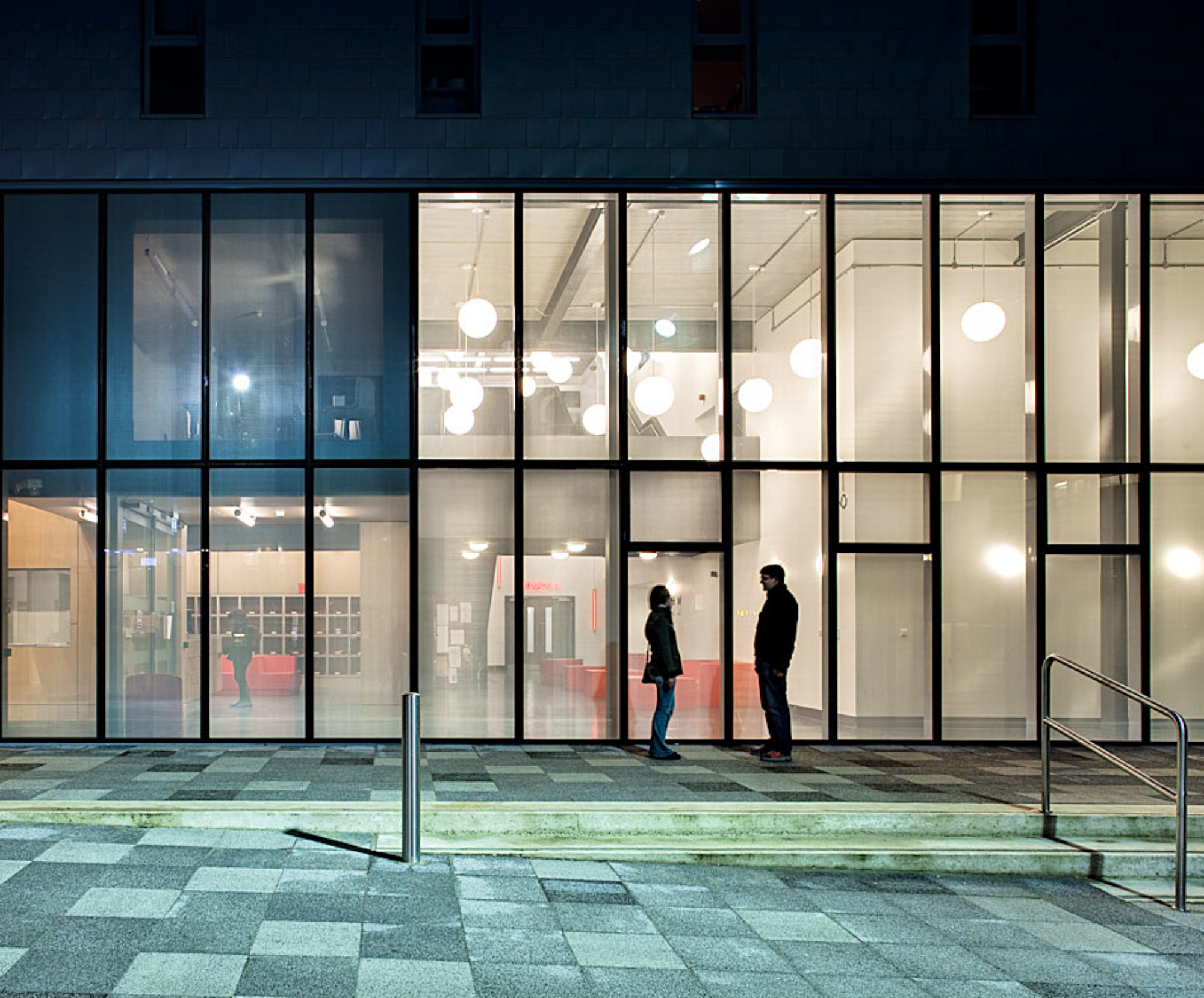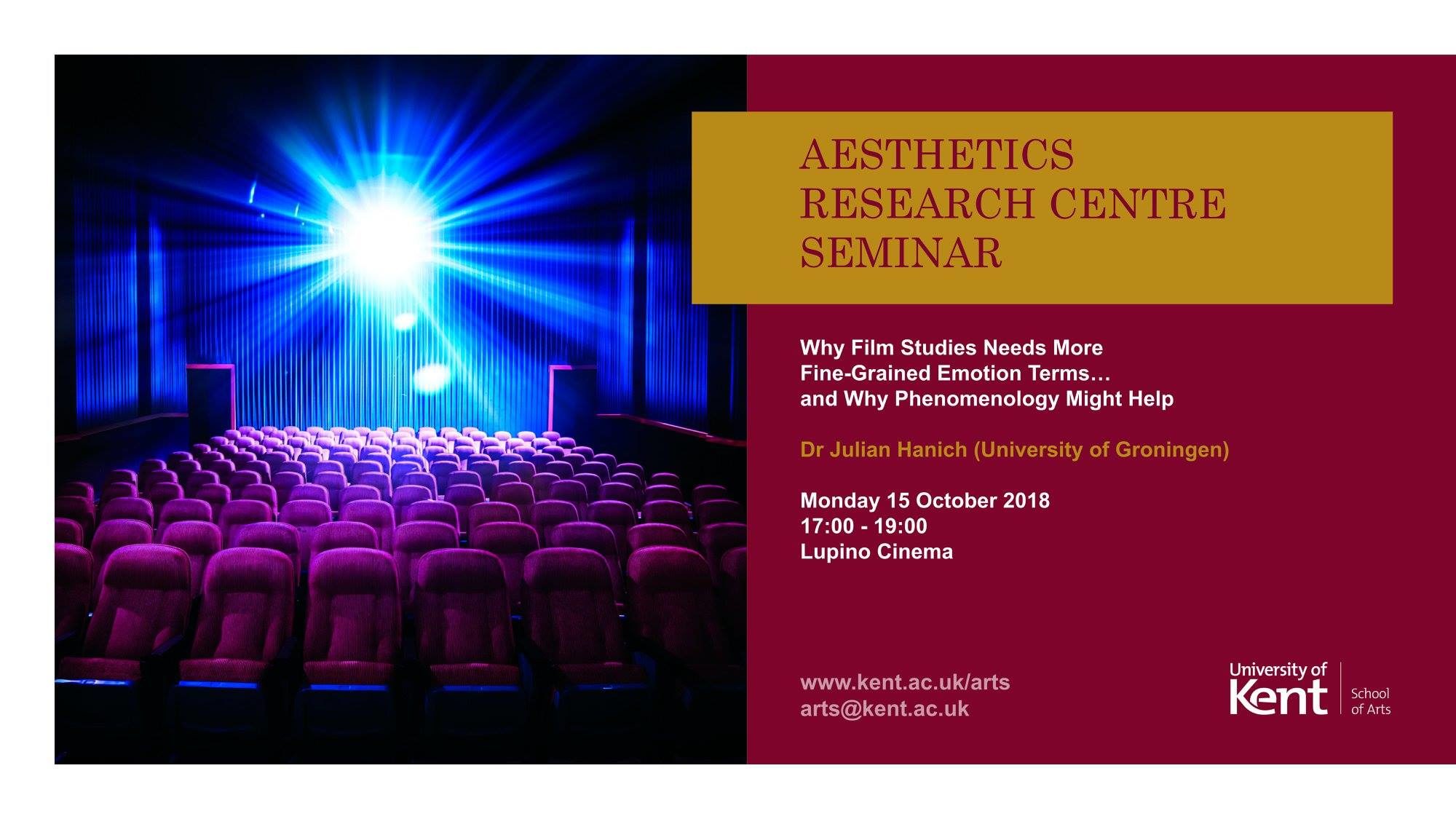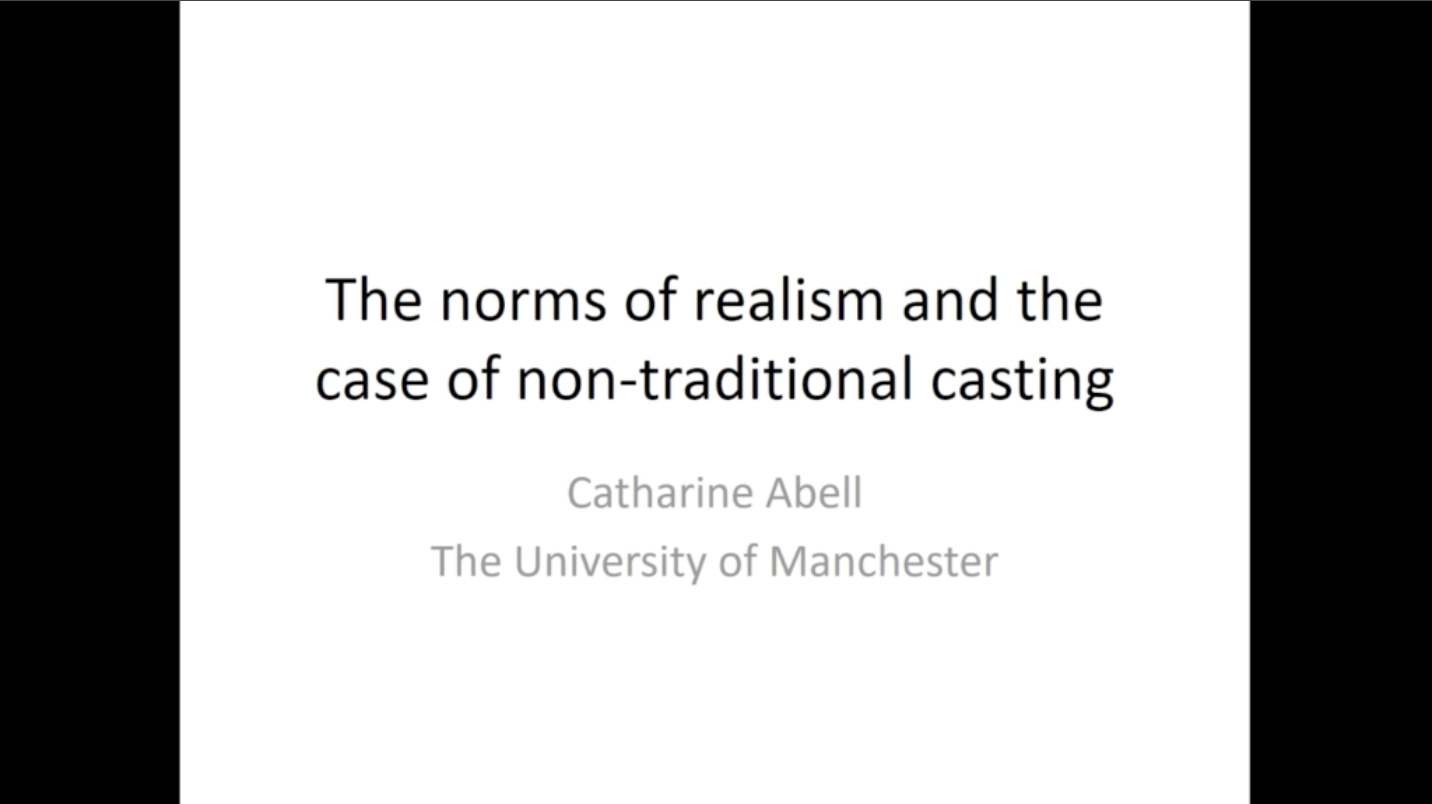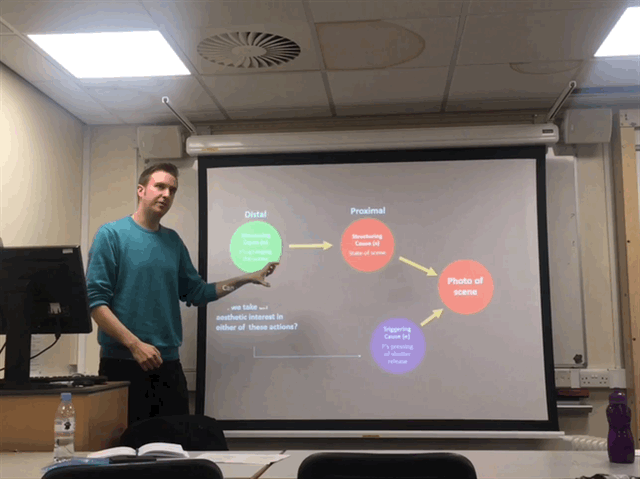Why Film Studies Needs More Fine-Grained Emotion Terms …and Why Phenomenology Might Help
Dr Julian Hanich (University of Groningen)
Monday 15th October 2018, at 5pm in the Lupino Screening Room, Grimond Building, University of Kent
In this talk I will make a threefold proposal: I claim that (a) film studies, due to an overly strong focus on a few standard emotions, lacks a fine-grained lexicon of emotions spectators experience when watching films, that (b) it would be beneficial for research conducted in the field to introduce more granular and well-defined emotion terms and that (c) the specific subfield of ‘phenomenology of emotions’ might help. Drawing on my previous studies on different forms of fear, disgust and being moved, I will try to elucidate why the phenomenology of emotions has specific resources to contribute.
Dr Julian Hanich is an Assistant Professor of Film Studies in the Department of Arts, Culture and Media at the University of Groningen, The Netherlands.



